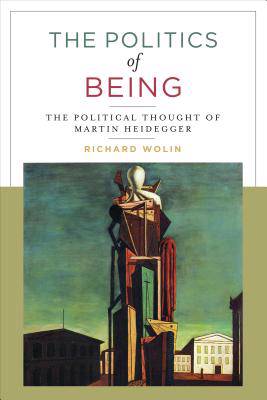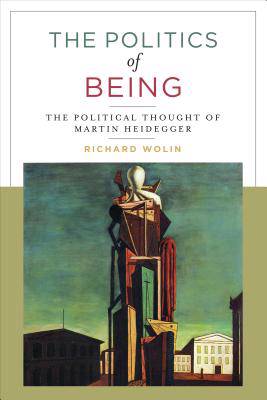
Bedankt voor het vertrouwen het afgelopen jaar! Om jou te bedanken bieden we GRATIS verzending (in België) aan op alles gedurende de hele maand januari.
- Afhalen na 1 uur in een winkel met voorraad
- In januari gratis thuislevering in België
- Ruim aanbod met 7 miljoen producten
Bedankt voor het vertrouwen het afgelopen jaar! Om jou te bedanken bieden we GRATIS verzending (in België) aan op alles gedurende de hele maand januari.
- Afhalen na 1 uur in een winkel met voorraad
- In januari gratis thuislevering in België
- Ruim aanbod met 7 miljoen producten
Zoeken
€ 186,95
+ 373 punten
Uitvoering
Omschrijving
Martin Heidegger's ties to Nazism have tarnished his stature as one of the towering figures of twentieth-century philosophy. The publication of the Black Notebooks in 2014, which revealed the full extent of Heidegger's anti-Semitism and enduring sympathy for National Socialism, only inflamed the controversy. Richard Wolin's The Politics of Being: The Political Thought of Martin Heidegger has played a seminal role in the international debate over the consequences of Heidegger's Nazism. In this edition, the author provides a new preface addressing the effect of the Black Notebooks on our understanding of the relationship between politics and philosophy in Heidegger's work. Building on his pathbreaking interpretation of the philosopher's political thought, Wolin demonstrates that philosophy and politics cannot be disentangled in Heidegger's oeuvre. Völkisch ideological themes suffuse even his most sublime philosophical treatises. Therefore, despite Heidegger's profundity as a thinker, his critique of civilization is saturated with disturbing anti-democratic and anti-Semitic leitmotifs and claims.
Specificaties
Betrokkenen
- Auteur(s):
- Uitgeverij:
Inhoud
- Aantal bladzijden:
- 288
- Taal:
- Engels
Eigenschappen
- Productcode (EAN):
- 9780231179324
- Verschijningsdatum:
- 15/11/2016
- Uitvoering:
- Hardcover
- Formaat:
- Genaaid
- Afmetingen:
- 155 mm x 229 mm
- Gewicht:
- 589 g

Alleen bij Standaard Boekhandel
+ 373 punten op je klantenkaart van Standaard Boekhandel
Beoordelingen
We publiceren alleen reviews die voldoen aan de voorwaarden voor reviews. Bekijk onze voorwaarden voor reviews.









